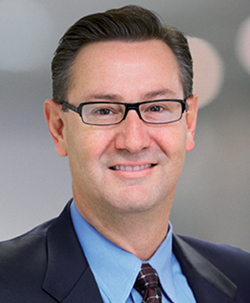Vivus’s plan to jumpstart the tepid launch of obesity pill Qsymia may have been put on simmer. Health issues have forced just-appointed Vivus CEO Tony Zook to resign, the company announced in a statement Tuesday.
Zook stepped down due to what the drug maker described as a previously diagnosed condition. He is being replaced by Johnson & Johnson vet Seth Fischer, whose healthcare experience includes serving as group chairman for J&J and holding the same post at the healthcare-product giant’s Cordis unit. Fischer’s background includes commercializing epilepsy, migraine, cardiovascular, neurologic and psychiatric treatments, among others.
A former global commercial operations EVP at AstraZeneca, Zook’s time at Vivus has been short: he was named CEO in July after shareholder First Manhattan unseated CEO Leland Wilson in what Reuters noted was called one of biotech’s ugliest proxy fights.
The hope was that Zook would be able to bring his experience launching AstraZeneca blockbusters to his new company, which has relied on a somewhat small approach to market expansion.
Unlike peers such as Arena, which is teamed with Eisai to market Belviq, and Orexigen which has lined up Takeda as the marketing arm for its experimiental drug Contrave, Vivus has been tackling its marketing on its own. Zook told investors in August that he was going to change that, and was sizing up possible partners.
Although a partner would be a new twist, Zook said he was going to stick with the Vivus approach of targeting healthcare providers. The company has maintained a distinct focus on HCPs, as opposed to pursuing a large direct-to-patient approach. This focus has meant Vivus has been talking with HCPs not just about clinician-focused resources, but also relying on them to share information with their patients about tools like the company’s weight-loss app.
Sales in the prescription weight-loss space have been slow, despite the mindset on Wall Street and in the healthcare community that there is a demand for these weight-loss aids, and the American Medical Association’s decision to label obesity a disease. Although payers have been partly to blame for the slow uptake, Orexigen and Eisai executives told MM&M in earlier interviews that despite the noise around obesity and health risks, doctors and patients are not accustomed to discussing obesity in medical terms, or as a medical problem. This requires a mental and conversational shift that moves being overweight from being considered the result of lack of restraint into a medical situation that can be alleviated by medical treatment.








